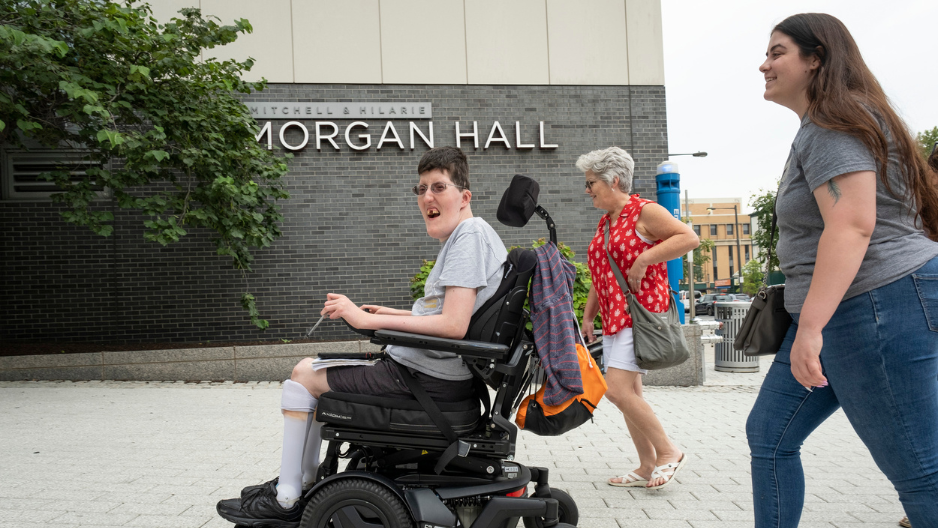As students adjust to college life in the fall semester, they may notice how accessible campus is. This is because of the work of centers like the Institute on Disabilities (IOD) in the College of Education and Human Development. The IOD provides research-based guidance on increasing the quality of life for disabled people. The mission is to learn from and work with people with disabilities, and their families, in diverse communities across Pennsylvania.
Associate Director and Assistant Research Professor Katey Burke says the IOD's purpose is "to create and share knowledge, change systems and society, and promote self-determined lives so that disability is recognized as a natural part of the human experience."
Some of the IOD's earliest work includes advocating and facilitating the closure of state-run hospitals and institutions that housed individuals with intellectual and developmental disabilities. IOD researchers collaborated with residents moving out of the Pennhurst State School and Hospital and began exploring quality of life and community living.
The IOD continues this work today through their Independent Monitoring for Quality (IM4Q) project. Through this project, approximately 5000 individuals with intellectual and developmental disabilities and autism across Pennsylvania are interviewed annually with quality-of-life measures including: choice making, dignity and respect, and community living.
In July 2023, Lisa Sonneborn, the IOD's director of media arts and culture, coordinated a project that told the stories of people who resided in Pennhurst.
The project called "File/Life: We Remember Stories of Pennhurst" has had installations in both Philadelphia and Washington D.C. In collaboration with community archivists and artists, the project highlights the daily lives of the residents and their experiences. You can find out more about the project here.
The IOD takes a social justice and intersectional approach to research and evaluation by partnering people with disabilities from marginalized communities in their work. This includes hiring people with disabilities to positions within the IOD and maintaining partnerships with the Temple community to highlight diverse perspectives.
Director of Research and Evaluation for the IOD, Eva Weiss says, "this commitment to justice also produces more effective and authentic research results and impacts."
Associate Director Katey Burke also highlights an increased attention to how research is disseminated. Previously, she explains, studies were written using heavy and inaccessible language and vocabulary. Now, there is a shift occurring within research focusing on plain language.
"Plain language is about making information easy to understand and to use - whether that's in a medical, educational, or community setting," Burke says.
As the fall semester begins, the IOD hopes to engage with the community across Temple's campus.
"We look forward to continuing to grow our research and evaluation efforts with partners within the College of Education and Human Development and across the university," says Sally Gould-Taylor, IOD executive director and associate research professor. "Some examples of these current partnerships are with Dr. Paul Jones on quality-of-life analysis, with Dr. Phil McCallion and Lisa Ferretti addressing health communication and social isolation, and with Dr. Amy Lynch to promote trauma-informed practices in preschool."
Learn more about the Institute on Disabilities and how to support research and activities on their website.

